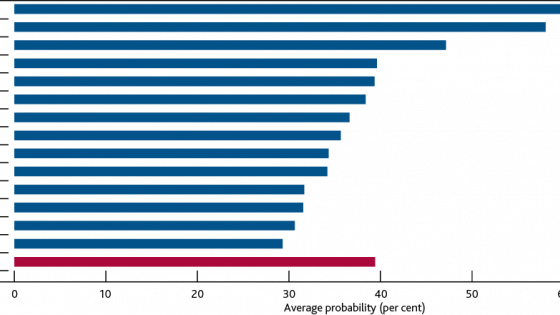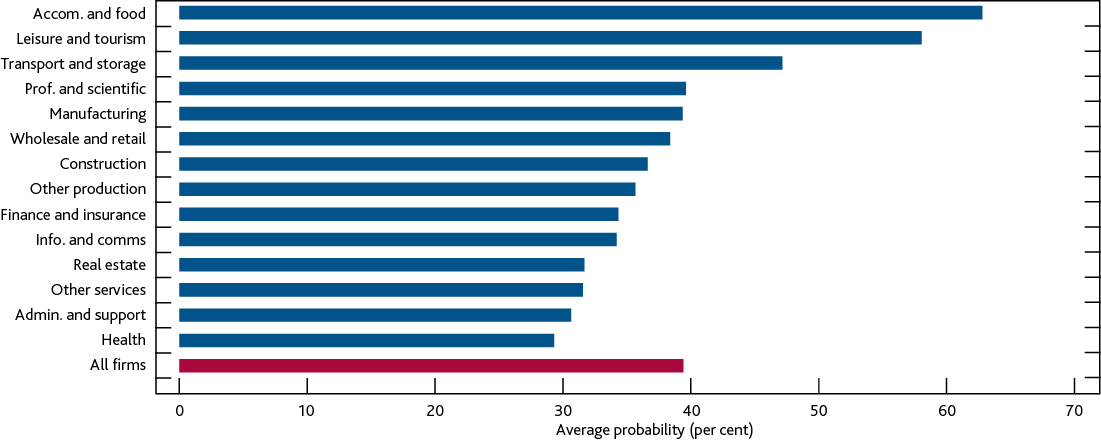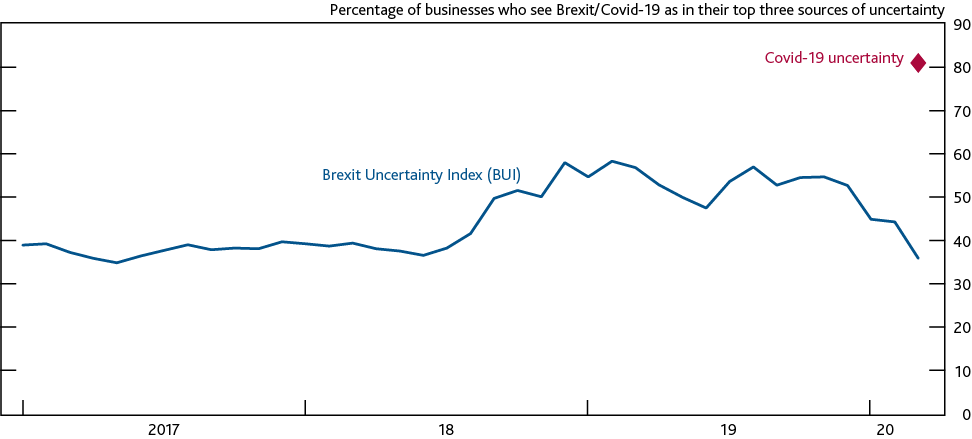We have previously used the Decision Maker Panel (DMP), a survey of chief financial officers from small, medium and large UK businesses, to assess how British businesses were being affected by the UK’s withdrawal from the EU (e.g. Bloom et al. 2020). But the spread of the novel coronavirus (COVID-19) has created an important new source of concern for firms. The March DMP survey contained a question asking about the expected impact of the spread of COVID-19 on sales over the next year and one about its importance as a source of uncertainty. This column summarises the results.
The March DMP was in the field between 6 and 20 March. It received around 2,500 responses. Events have been moving very quickly and it is clearly difficult for businesses to know exactly what will happen over the coming months. But the questions we added to the March DMP survey can provide a timely indication of firms’ expectations. We also plan to add further questions to the April survey to track how UK businesses are being affected as the virus outbreak unfolds.
Expected impact of COVID-19 on sales
The spread of COVID-19 was expected to have a large impact on the sales of UK businesses. In the March DMP survey, panel members were asked to attach probabilities to five different possible outcomes for how they expect the sales of their business to be affected over the next year. The average probability of a negative impact was estimated at 71% (Figure 1). There was thought to be a 39% chance of a large negative impact (of more than 10%) and a 32% chance of a smaller negative impact (of less than 10%). There was a 22% chance of no impact and a 7% chance of a positive effect. However, these sales impacts should be temporary.
Figure 1 Expected impact of COVID-19 on sales over the next year
Note: The results are based on the question ‘How do you expect the spread of coronavirus (Covid-19) to affect your sales over the next year? What is the percentage likelihood (probability) that it will: (i) Have a large positive effect on sales at home and abroad, adding 10% or more to sales (ii) Have a modest positive effect on sales at home and abroad, adding less than 10% to sales (iii) Make little difference (iv) Have a modest negative effect on sales at home and abroad, subtracting less than 10% from sales (v) Have a large negative effect on sales at home and abroad, subtracting more than 10% from sales.
Survey responses became significantly more pessimistic within the survey window. The survey was in the field from 6 to 20 March. During this period, the cumulative number of confirmed cases of COVID-19 in the UK rose from 160 to about 4,000 and many new measures were announced to try and tackle the spread of the virus. The average probability attached to a large negative impact on sales rose from 25% at the start of survey window to almost 60% at the end (Figure 2).
Figure 2 Probability of COVID-19 having a large negative impact on sales (>10%) over the next year by date of survey completion
Note: see note for Figure 1.
Results by industry
The impact of COVID-19 on sales was expected to be material across all sectors. But businesses in accommodation and food, leisure and transport services expected to be most severely impacted. Firms in the accommodation and food and leisure and tourism industries estimated the likelihood of a large negative impact on their sales over the next year at around 60% (Figure 3). They were followed by businesses in transport and storage who estimated this probability at just under 50%. Health and administration and support were the sectors that expected the smallest effects.
Figure 3 Probability of COVID-19 having a large negative impact on sales (>10%) over the next year by industry
Note: see note for Figure 1.
The impact on sales over the next year from the spread of COVID-19 was expected to be broadly similar across firms of different sizes.
Uncertainty
The spread of COVID-19 has also generated substantial uncertainty for UK businesses. In the March survey, 81% of businesses reported that COVID-19 was one of the top three sources of uncertainty for their business (Figure 4). For 51% of companies the disease was a top source of uncertainty, and for a further 30% it was the second or third largest source of uncertainty.
During the period that the survey was in the field, an increasing share of firms cited COVID-19 as one of their top three sources of uncertainty. This proportion increased from 67% among early responders to 97% for those who responded between 17 and 20 March.
Figure 4 COVID-19 as a source of uncertainty
Note: The results are based on the question ‘How important is the spread of coronavirus (Covid-19) as a source of uncertainty for your business?’
The uncertainty created by COVID-19 has led to a sharp increase in overall uncertainty. The percentage of firms reporting that the overall level of uncertainty facing their business was either high or very high increased from 40% in February to 68% in March (Figure 5). At the firm level, there was a strong correlation between reporting high overall uncertainty and COVID-19 being an important source of uncertainty.
Figure 5 Overall uncertainty facing businesses
Note: Results are based on the question ‘How would you rate the overall uncertainty facing your business at the moment? (i) Very high – very hard to forecast future sales, (ii) High – hard to forecast future sales, (iii) Medium – future sales can be approximately forecasted, (iv) Low – future sales can be accurately forecasted, (v) Very low – future sales can be very accurately forecasted.
COVID-19 was viewed as a more important source of uncertainty than Brexit for most UK businesses in the March survey. The share of firms reporting that Brexit was an important source of uncertainty for their business fell from 44% in February to 36% in March (Figure 6). That was one of the lowest values recorded since the DMP survey was launched in August 2016. In particular, there was a drop in the proportion of firms reporting that Brexit was their top source of uncertainty (from 12% to 6%) in the latest data. At 81%, the percentage who thought that COVID-19 was an important source of uncertainty for their business in the March survey exceeded the previous peak for Brexit uncertainty of 58% (Figure 6).
Figure 6 Brexit and COVID-19 uncertainty
Note: Results are based on the question in the footnote of Figure 4 and on the question ‘How much has the result of the EU referendum affected the level of uncertainty affecting your business?’
References
Bloom, N, P Bunn, S Chen, P Mizen and P Smietanka (2020), “Brexit uncertainty has fallen since the UK general election”, VoxEU.org, 25 February.














